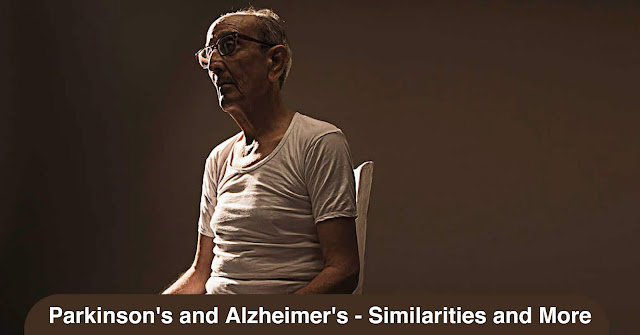September 21st is celebrated as World Alzheimer's Day, across the world. There is a significant need for the increased awareness on this neurodegenerative disorder. There are many scientific researches have found link between Parkinson's and Alzheimer's, however concrete proofs need to be established on this. According to the medical journal Acta Neuropathologica medical a few found biological mechanisms that connect Parkinson's disease to Alzheimer's.
What is Parkinson's Disease (PD)?
Parkinson's disease was first discovered by Dr. James Parkinson. Parkinson's disease is diagnosed based on the three symptoms - slowed body movement, rigid muscles and shakes and tremors. These are the initial recognizable symptoms. A few patients also show other symptoms that include slurred speech, difficulty in getting up from a chair, losing control over body parts and expressionless face.
What is Alzheimer's Disease (AD)?
Alzheimer's can be defined as a type of dementia that affects memory, thinking and other cognitive abilities of the brain. The prolonged systems lead to reduced quality of life. The person may find it difficult to even remember the names of their family members. Alzheimer's is the most common cause of dementia, a state of memory loss.
Similarities Between Parkinson's and Alzheimer's Diseases
As both diseases are considered as the neurodegenerative disorders, they share a few similarities. The cognitive impairment similarities between PD and AD are almost similar. Based on the location of the disease occurrence in the brain, PD is referred as subcortical and AD as cortical. This is the reason why the symptoms of PD are more related to movement and AD symptoms more on the cognitive side.
- Depression
Both the diseases show the symptoms of depression but the influence of it could be seen on the higher side in AD than in PD. The depression in a PD case is more responsive to the antidepressant treatment compared to the AD.
- Psychotic Symptoms
Psychotic symptoms can be seen in both AD and PD. Delusions, hallucination and a state of paranoid are among the common psychotic symptoms in the advanced conditions. The development of these symptoms occurs at a higher rate in AD context, compared to PD. However, the medications used to treat the motor conditions in PD, depending on the dose, can lead to paranoid ideas.
- Anxiety
Anxiety is another common symptom in these two disorders. And, it is common to use antidepressant and antianxiety medications to treat the conditions but it is important to keep the side-effects of medications. The excessive use of medications for anxiety will lead to major health issues that affect the overall health quality. Behavioral treatment for Parkinson's and Alzheimer's is a better treatment approach than the medications.
- Deterred Quality of Sleep
It is another common symptom that could be observed in both these neurodegenerative disorders. Additionally, in Parkinson's disease, the issue termed as REM (rapid eye movement) causes more disturbance during the sleep. In AD too, the depression associated with anxiety will become the major obstacles for a quality sleep.
- Changed Personality
Seniors experience various cognitive and physical impairments in these conditions and their overall personality will get affected. Undergoing the treatment and all the medications will have a severe effect on their typical characteristics. The movement disorders in PD will reduce their outgoing and social life; AD will have the same impact by reducing the cognitive ability of a person.
It is important to know that medications that are used in one condition may show a negative impact on another condition. For instance, most of the medications prescribed to treat AD will show a negative impact on PD, due to its typical movement disorders. Identifying the cognitive and behavioral similarities and distinguishing the conditions in a better way. This helps in the diagnosis process as well as in better treatment approach.

No comments:
Post a Comment